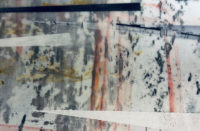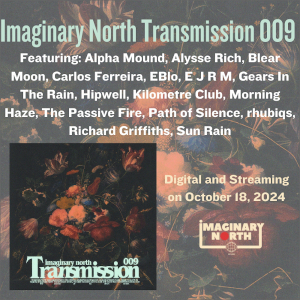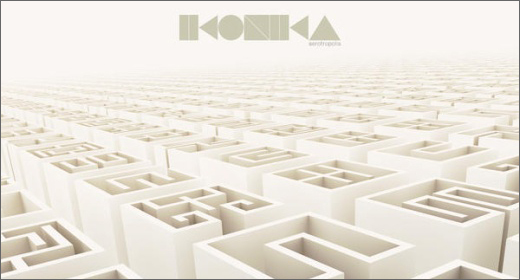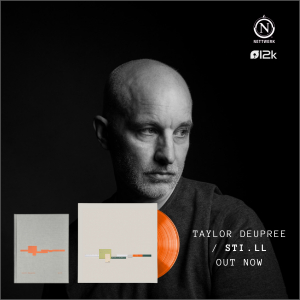Al Qadiri’s take is indeed spare and spacious but not so very bass rich, a pop music westernized with melodramatically sweeping and bleating synths and decorated with a few tastefully selected virtual neo-Oriental knick-knacks and knock-offs.
 Kuwaiti Fatima Al Qadiri is a young but well-traveled, multidisciplinary artist based in New York who made a lasting impression on the present reviewer and many others like him with her stunning video Warn-U and mixtape (as Ayshay) Muslim Trance. In a profile, Jace Clayton (aka DJ/rupture) characterized her world as “large and weird.” I myself would characterize it more along the lines of yes, large indeed, but weird, not really. More like “ours,” if you just take a moment to contemplate what the past decade or so has done both for us and to us.
Kuwaiti Fatima Al Qadiri is a young but well-traveled, multidisciplinary artist based in New York who made a lasting impression on the present reviewer and many others like him with her stunning video Warn-U and mixtape (as Ayshay) Muslim Trance. In a profile, Jace Clayton (aka DJ/rupture) characterized her world as “large and weird.” I myself would characterize it more along the lines of yes, large indeed, but weird, not really. More like “ours,” if you just take a moment to contemplate what the past decade or so has done both for us and to us.
On her debut album Asiatisch, she like us digitally spans oceans with her high-gloss version of the short-lived grime sub-genre “Sino-grime,” a playful speculation on the “sound of Shanghai towerblocks and the millennial promise of a new superpower…rejecting the clutter of live instrumentation in favour of empty space, dehumanised synths and detuned basslines,” according to critic Dan Hancox. On the surface, it is a vaporwave celebration of the state-of-the-art, hi-def, multimedial virtual reality crossbred with fantasies of emerging superpower China, drawing on pop culture, advertising and literary fiction as much as high-speed digital brokerage and aspirational superficiality. It’s a jade dragon sculpture with a QR sticker plastered across its face and a meditation on multi-directional pirating.
Al Qadiri’s take is indeed spare and spacious but not so very bass rich, a pop music westernized with melodramatically sweeping and bleating synths and decorated with a few tastefully selected virtual neo-Oriental knick-knacks and knock-offs. Musically, it could hardly be more global. After the mild shock of a disarming and intimate cover of “Nothing Compares 2 U” (rechristened “Shanzhai” and sung by Helen Fung in Mandarin gibberish, it says here), the more familiar largeness of Al Qadiri’s music fully reveals itself. Her music is architectural, and “Szechuan” is a perfect example, raising sleek facades—whispering in your ear flute, choral voices in colored fragments—on sturdy crossbeams of bells and gongs and mallets. There are voices sprinkled throughout, declaiming lines of poetry as if they were airline advertising slogans and post-Einstein on the Beach operatic solfège syllable interjections. Steel pans flash along “Shanghai Freeway” like reflective lenses embedded in the pavement.
It may be a bit too long, even though it is not very long at all. But, aware as it is of its own fallaciousness (Al Qadiri has never been to China and say she only knows what the West has told her about it), Asiatisch is a great-granddaughter in spirit to Karl May’s scads of popular novels about the Wild West, which he wrote without ever having set a tenderfoot there. (Maybe that’s also why the title is in German?)
Asiatisch is available on Hyperdub.



























